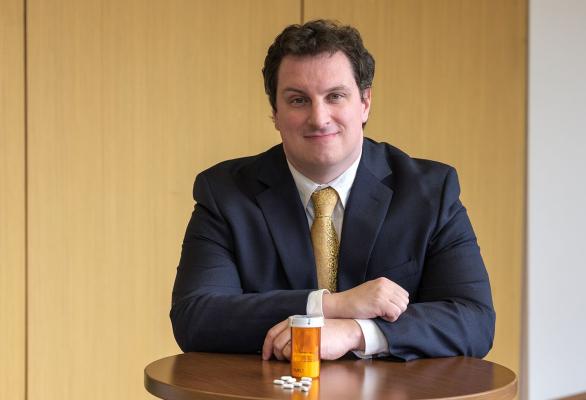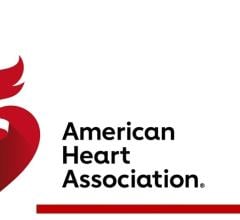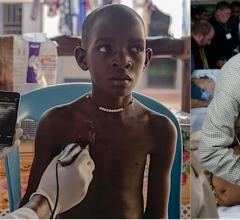
Mark Butler, Ph.D., is the principal investigator on the new trial using smart prescription bottles. Photo by Feinstein Institutes)
January 5, 2022 — The Feinstein Institutes for Medical Research, the science arm of Northwell Health, recently received a $150,000 grant from TD Bank, America's Most Convenient Bank, to launch a new research program and the first clinical trial to reduce cardiovascular disease (CVD) in the black community and determine the best behavioral interventions to lower cardiovascular disease.
Medication adherence is crucial for improving health and yet 50 percent of the prescriptions filled in the United States are taken incorrectly. CVD disproportionally affects the Black community, but this disparity could be addressed by increasing adherence to protocols for taking potentially life-saving medications.
The fully virtual trial will initially enroll 42 participants and incorporate smart-tech-enabled prescription bottles, which will collect data on the dose and timing of when cholesterol-lowering medication and statins are taken orally. The data will prompt text messages to remind or encourage users to adhere to their medication regimen.
“Cardiovascular disease is a major driver of death, particularly among people in the black community. Understanding how to promote adherence to life-saving medications is one of the best ways we have to shrink that disparity,” said Mark Butler, Ph.D., an assistant investigator in the Institute of Health System Science and principal investigator on the new trial. “With the support of TD Bank and colleagues across the health system, we hope to determine the best intervention strategies to help people stick to their prescribed treatments and improve their cardiovascular health.”
Michael Diefenbach, Ph.D., professor in the Institute of Health System Science at the Feinstein Institutes was one of the editors on the special edition of the journal.
Prioritizing Equity in Healthcare
"To improve health care outcomes for all, we need to identify innovative solutions that address the inequities that currently exist," said Emmet Conlon, head of healthcare at TD Bank. "We know cardiovascular disease impacts the black community differently. We hope that through this investment, we can help identify ways to address inequities and improve health outcomes for vulnerable populations."
The trial's primary goal is to increase medication adherence by at least 20 percent using text-message-delivered interventions to reduce CVD disparities.
Additionally, the team will collect data on the ideal “intervention dose” – the most beneficial frequency of text messages needed to meaningfully increase medication adherence. The trial’s text message cues will use a multi-behavioral change technique (BCT) intervention, which incorporates feedback on behavior, monitoring, goal-setting, action planning and prompts to encourage positive health behavior.
For example, a participant may receive the text message “Did you take your medication as prescribed today?” requiring a response of “Yes” or “No,” ideally prompting a positive behavior.
Funding for Life-saving Research in the Black Community
This grant from TD Bank supports Northwell’s Outpacing the Impossible campaign, a $1 billion comprehensive fundraising effort to fuel innovation to advance health care and support Northwell’s promise to the people it serves. The campaign – which supports capital projects, improves hospitals and clinical programs, advances research and funds endowment for teaching and research initiatives – was publicly launched in October 2018 and to date has raised more than $900 million.
"Through the TD Ready Commitment, the Bank's corporate citizenship platform, we make community investments that support the changes necessary to help create a more inclusive and sustainable future," said Shelley Sylva, head of U.S. Corporate Citizenship at TD Bank. "But we can't create that more sustainable, inclusive future without addressing the racial disparities in healthcare access and outcomes. That is why I am so thrilled to support this new, innovative research that will help identify ways to make sure that vulnerable communities aren't being left behind when it comes to getting the care they need."
“Closing health disparity gaps will increase the equity and quality of healthcare for our communities,” said Kevin J. Tracey, M.D., president and CEO of the Feinstein Institutes and the Karches Family Distinguished Chair in Medical Research. “This support from the TD Bank will enable Dr. Butler to shed new light on technologies to influence behavioral interventions for cardiovascular disease.”
The Institute of Health System Science, led by Karina Davidson, Ph.D., the Donald and Barbara Zucker Professor in Health Outcomes, is a multidisciplinary team of scientists and clinicians whose research efforts are centered on developing evidence-based interventions often using new technologies to improve health outcomes for individuals, organizations and communities.
Most recently, the Institute of Health System Science announced the hiring of Felicia Hill-Briggs, Ph.D., to help spearhead and expand disease prevention research. Dr. Hill-Briggs was named the Simons Distinguished Chair in Clinical Research in October. Also, recently announced, Edith Burns, M.D., received $1.6 million from the National Institutes of Health’s National Institute on Aging to support a trial to expand the use of video, educational materials and a palliative care educator specialist for optimizing patient-centered goals of care planning.


 September 17, 2024
September 17, 2024 

